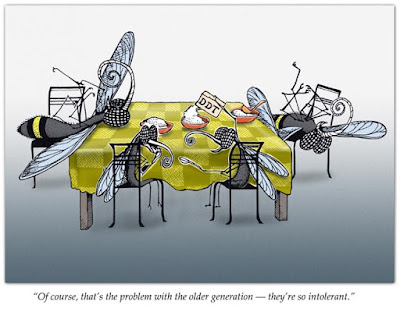 Essential oils are the driving force behind many of the nature-based pest control and fungicide products in the retail world today. Sometimes called botanical oils or horticultural oils, the distinctions between essential and botanicals can be semantic, non-existent, or formulation-driven. Horticultural oils, on the other hand, are generally mineral oils and not plant-based. Essential oils are derived from various plants and have been used to combat pests for hundreds, if not thousands, of years. Neem oil, for instance, is a product of the Neem tree and has been used in India since ancient times. Essential oils work in many ways to control pest creatures and fight pathogens: they smother insect pests, they coat plant surfaces and suppress fungal growth, they breakdown insect exoskeletons, they disrupt reproductive cycles and they are excellent repellents. Sometimes all the different oils can be overwhelming to consider; I’m going to go over some of the products we carry to (hopefully) ease some of that.
Essential oils are the driving force behind many of the nature-based pest control and fungicide products in the retail world today. Sometimes called botanical oils or horticultural oils, the distinctions between essential and botanicals can be semantic, non-existent, or formulation-driven. Horticultural oils, on the other hand, are generally mineral oils and not plant-based. Essential oils are derived from various plants and have been used to combat pests for hundreds, if not thousands, of years. Neem oil, for instance, is a product of the Neem tree and has been used in India since ancient times. Essential oils work in many ways to control pest creatures and fight pathogens: they smother insect pests, they coat plant surfaces and suppress fungal growth, they breakdown insect exoskeletons, they disrupt reproductive cycles and they are excellent repellents. Sometimes all the different oils can be overwhelming to consider; I’m going to go over some of the products we carry to (hopefully) ease some of that. Before I go any further, I’d like to address the seemingly infinite websites and articles devoted to essential oils. A quick search will show that most of these relate to health and beauty usages, but there are also a great many that tout DIY essential oils for pest control. I am personally a big fan of most DIY projects, but there are several good reasons that this is not the way to go with pest control:
Before I go any further, I’d like to address the seemingly infinite websites and articles devoted to essential oils. A quick search will show that most of these relate to health and beauty usages, but there are also a great many that tout DIY essential oils for pest control. I am personally a big fan of most DIY projects, but there are several good reasons that this is not the way to go with pest control:• When it comes to insect control, oils need to come into contact with the insects and their larvae in order to be effective. This is just not practical, or even possible, when trying to apply via droppers, cotton balls, etc. Additionally, most insects are small and really good at hiding and running, so just finding them can be tricky. Not to mention that, once you have an infestation you need much more than spot treatments.
• To use essential oils as a fungicide, you need to cover all the plant surfaces. Without using the proper formulation and spraying techniques this type of application is impractical and possibly harmful to plants.
• Many of these oils are toxic. When used in their undiluted state they can cause skin problems and can be very dangerous to pets (especially cats).
• Essential oils are expensive. Additionally, most essential oils work best when using in combination with other oils. You could spend a not-so-small fortune in oils trying to come up with the right formula.
 • Mass-produced essential oils are not regulated, so their inputs and formulation processes cannot be relied upon to be as pure as you might like, much less organic.
• Mass-produced essential oils are not regulated, so their inputs and formulation processes cannot be relied upon to be as pure as you might like, much less organic.The solution to all of the above concerns is to know an oil's strengths and weaknesses and then choose a well-vetted, professionally-developed oil product that has been designed for maximum efficiency, ease of use, and affordability. Luckily, there are lots of good choices out there that you can rely on worry-free.
Castor Oil: This oil is derived from Castor Beans from the Ricinus communis plant and has been used as a repellent for a very long time. These days, Castor Oil is used as the main ingredient in the most popular mammal repellents out there, but it also appears on the ingredient lists of some insecticides as a deterrent ingredient. We carry a number of products with Castor Oil in it (see here), including IV Organic 3-in-1 Plant Guard, which protects trees and plants from environmental extremes and mammal and insect pests. To read a profile of Castor Oil from Cornell University, go here.
 This powerfully aromatic oil comes from the wood of two different tree species, Junipers (Juniperus spp.) and Cypresses (Cupressus spp.). While most people find this particular smell appealing, this is not the case for many crawling and flying creatures; they simply don’t like it. Take a look at our products that contain Cedarwood Oil here to see the variety of pests it repels. For example, Mosquito Magician relies on 3% Cedarwood Oil in its highly effective formulation. To read a profile of Cedarwood Oil from Cornell University, go here.
This powerfully aromatic oil comes from the wood of two different tree species, Junipers (Juniperus spp.) and Cypresses (Cupressus spp.). While most people find this particular smell appealing, this is not the case for many crawling and flying creatures; they simply don’t like it. Take a look at our products that contain Cedarwood Oil here to see the variety of pests it repels. For example, Mosquito Magician relies on 3% Cedarwood Oil in its highly effective formulation. To read a profile of Cedarwood Oil from Cornell University, go here.Lemongrass Oil:
This is another extremely fragrant oil, so much so that you can find it in perfumes and air fresheners. Produced from the perennial grass Cymbopogon, this oil has insecticidal, fungicidal, and repellent properties. Within our product offerings, Lemongrass Oil is rampant in our mosquito control products. With its pleasant scent and powerful repelling capabilities, it makes a great alternative to the nasty chemical smells of traditional mosquito repellent. Medella Naturals™ Insect & Mosquito Repellent Spray is a great example of this, it smells so good you will want to spray it everywhere you go. To read a profile of Lemongrass Oil from Cornell University, go here.
Peppermint Oil:
 Peppermint is a natural hybrid that is a cross between Spearmint and Watermint. The distinctive smell of oil from these leaves is another example of a scent that humans enjoy but insects and mammals find quite the opposite. Peppermint is often touted as a repellent for everything from mice to spiders, but in truth, it has limited efficacy on its own; it’s best when combined thoughtfully with other essential oils. Review some of our products that contain Peppermint Oil (here) to see the ways in which this is done. For instance, Essentria IC-3, a highly popular and extremely effective insecticide, contains 1% Peppermint Oil in combination with Rosemary Oil and Geraniol. To read a profile of Peppermint Oil from Cornell University, go here.
Peppermint is a natural hybrid that is a cross between Spearmint and Watermint. The distinctive smell of oil from these leaves is another example of a scent that humans enjoy but insects and mammals find quite the opposite. Peppermint is often touted as a repellent for everything from mice to spiders, but in truth, it has limited efficacy on its own; it’s best when combined thoughtfully with other essential oils. Review some of our products that contain Peppermint Oil (here) to see the ways in which this is done. For instance, Essentria IC-3, a highly popular and extremely effective insecticide, contains 1% Peppermint Oil in combination with Rosemary Oil and Geraniol. To read a profile of Peppermint Oil from Cornell University, go here.This particular oil comes from the same plant (Rosmarinus officinalis) as the seasoning you may have in your kitchen. While it undoubtedly adds deliciousness to your food (yum, Rosemary Chicken!), it is also a potent insecticide for soft-bodied insects. Rosemary Oil works a suffocant and will also breakdown the body of the insect. Like Peppermint Oil, Rosemary Oil is enhanced in blends with other oils. Here are some of our best products containing this useful oil. In particular, I recommend that you take note of SNS 217; it contains a lively amount of Rosemary Oil at 10%. To read a profile of Rosemary Oil from Cornell University, go here.
Thyme Oil:
 This is another oil from a kitchen-familiar herb, Thyme (Thymus vulgaris). This oil has multiple amazing abilities – it works much the same as Rosemary Oil, but it also does all that to fungal pathogens. In recent years, we have come across some outstanding Thyme Oil products, notably Thyme Guard and Trifecta. Thyme Guard is a first-rate pesticide/fungicide/bactericide that contains 23% Thyme Oil (the highest of any comparable product out there) and lets the strength of that carry it as its sole active ingredient. Trifecta is also a 3-action product, but it contains 14% Thyme Oil in a medley of other oils. Both are excellent choices to get control of hundreds of insects and pathogens on plants. To read a profile of Thyme Oil from Cornell University, go here.
This is another oil from a kitchen-familiar herb, Thyme (Thymus vulgaris). This oil has multiple amazing abilities – it works much the same as Rosemary Oil, but it also does all that to fungal pathogens. In recent years, we have come across some outstanding Thyme Oil products, notably Thyme Guard and Trifecta. Thyme Guard is a first-rate pesticide/fungicide/bactericide that contains 23% Thyme Oil (the highest of any comparable product out there) and lets the strength of that carry it as its sole active ingredient. Trifecta is also a 3-action product, but it contains 14% Thyme Oil in a medley of other oils. Both are excellent choices to get control of hundreds of insects and pathogens on plants. To read a profile of Thyme Oil from Cornell University, go here. You may have noticed the lack of organic certifications on the products I’ve mentioned. There are some certified organic essential oil products available (here are some of ours), but the lack of regulations that I mentioned before makes it difficult for manufacturers to source and develop wholly organic oils. While many do, the process is complicated and costly enough to keep others out of that fray. What reputable developers do instead is craft their products as sustainably and cleanly as they can. If this is a concern for you, your best bet is to do your homework on any product and/or manufacturer.
You may have noticed the lack of organic certifications on the products I’ve mentioned. There are some certified organic essential oil products available (here are some of ours), but the lack of regulations that I mentioned before makes it difficult for manufacturers to source and develop wholly organic oils. While many do, the process is complicated and costly enough to keep others out of that fray. What reputable developers do instead is craft their products as sustainably and cleanly as they can. If this is a concern for you, your best bet is to do your homework on any product and/or manufacturer.Take care out there.
Submitted by Pam
Submitted by Pam














